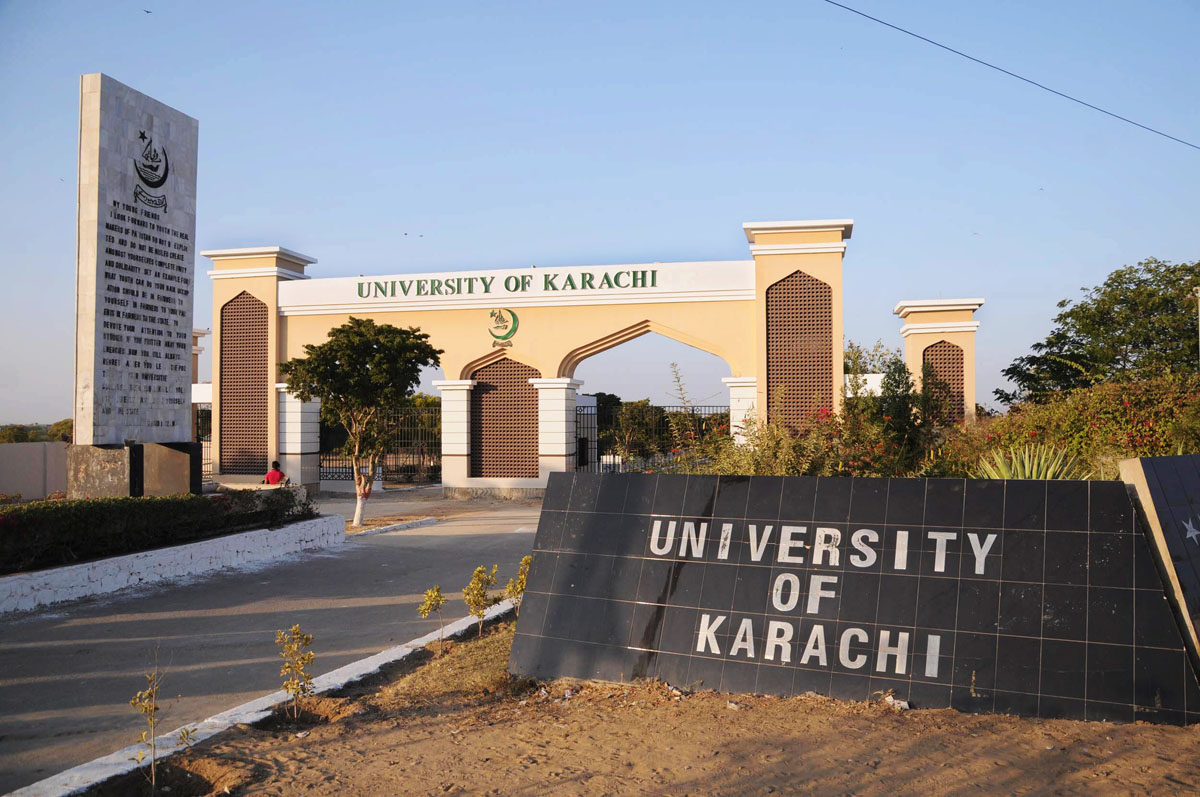
Representatives of three major political parties, the Muttahida Qaumi Movement (MQM), the Pakistan Peoples Party (PPP) and the Pakistan Tehreek-e-Insaf (PTI) sadly admitted to this reality that plagues Karachi today. The session, titled ‘Politics and public spaces’ was part of the ‘Khudi Festival’, being held at the HEJ Auditorium in Karachi University.

The moderator, a last-minute replacement for Jibran Nasir who came in much later, started off the session by asking MNA Ali Raza Abidi to explain the perception of no-go areas. MNA Abidi skillfully toyed around the subject, delving into the depths of philosophy to justify the fortifying of neighbourhoods along communal lines. “Karachi is an economic hub,” he started off by stating the obvious. “With the influx of migrants, people from the same community amalgamated in a specific area and gave rise to the concept of a ghetto.” Subsequently, members of the community set up barriers, which they believed were for their protection.
So what was the role of political parties in this fragmentation? Abidi was of the belief that political parties act in favour of their mandate. If the people of a particular community believe they will be safer inside the fences, political parties will ensure they accede to their wishes, he suggested.
The next speaker, PTI’s Khurram Sher Zaman, did not have much value to add to the debate. Perhaps for want of a better understanding of the topic, Zaman chose to stick to the party’s rhetorical stance of a ‘Naya Pakistan.’ He blamed political parties of infringing public spaces such as parks, hospitals and streets with ugly hoardings and billboards.
PPP’s Senator Taj Haider has been in politics since before most of the audience members were even born. His experience shone through his dialogue, which though delivered in a soft tone, managed to drive each point home.
Haider started off by blaming the general public for the lack of public spaces, or rather for not using them when they were there. “In my time, there were playgrounds and literary academies in almost every neighbourhood. They were brimming with energetic teens,” he recalled. The playgrounds now lie empty, he lamented.
According to Haider, the British left 23 cricket grounds in Karachi alone. “Why does no one play in these grounds anymore?” He recalled the time of his youth when you would be hard-pressed to find space in the playing fields of the KU on a Sunday like this. “Why are the grounds empty today?” he questioned the audience. Haider allowed just the right amount of time for his question to sink in before giving the answer: The fear factor. Perhaps people are too afraid to mingle with members of other communities, he reasoned. “When there is fear, people prefer to stick around with familiar faces: people of their own caste, language or community, thus giving rise to the polarised society we see today.”
Haider blamed the fear on extremism. He cautioned that unless the general public resolved to counter its effects, the country would continue to sink deeper into the mess. “Start small. Reclaim a small space, hang a net and start playing volleyball,” he suggested.
The debate, henceforth, quickly ventured off course, with Haider enjoying himself thoroughly by diving into a monologue of Islamic history and politics in the country. Abidi shared his own thoughts on the bun kebab versus the burger phenomenon and local government elections while Zaman continued to praise the struggles of the PTI against the status quo.
Published in The Express Tribune, December 8th, 2014.

















COMMENTS
Comments are moderated and generally will be posted if they are on-topic and not abusive.
For more information, please see our Comments FAQ